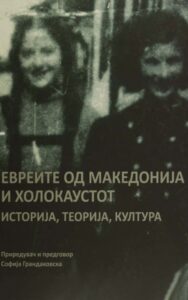
Dr. Sofija Grandakovska is an academic, poet, and author in comparative literature studies and interdisciplinary studies of the Holocaust and Jewish history, literature, and culture, with a specialization in Jewish history and Holocaust history in the Balkans. In fall 2019, Dr. Grandakovska was named a John Jay Visiting Scholar for her scholarly achievements on the study of the Shoah and Macedonian Jews. She teaches subjects on culture and crime in the Department of Anthropology at John Jay College of Criminal Justice, The City University of New York. Dr. Grandakovska has published several academic book-length studies such as “Miniatures and Maximums” (2020), “Akathistos Hymn Through Word and Fresco-painting” (2017), “Portrait of the Image” (2010), and Discourse of the Prayer (2008). She is the editor and co-author of the bilingual chrestomathy The Jews from Macedonia and the Holocaust: History, Theory, Culture (Euro Balkan Press, 2011).
PhD Institution: University of Skopje
Research Topic during the Fellowship: The Jews From Macedonia and the Holocaust: Race, Citizenship, Deportation.
Current Position: Visiting Scholar, John Jay College of Criminal Justice

